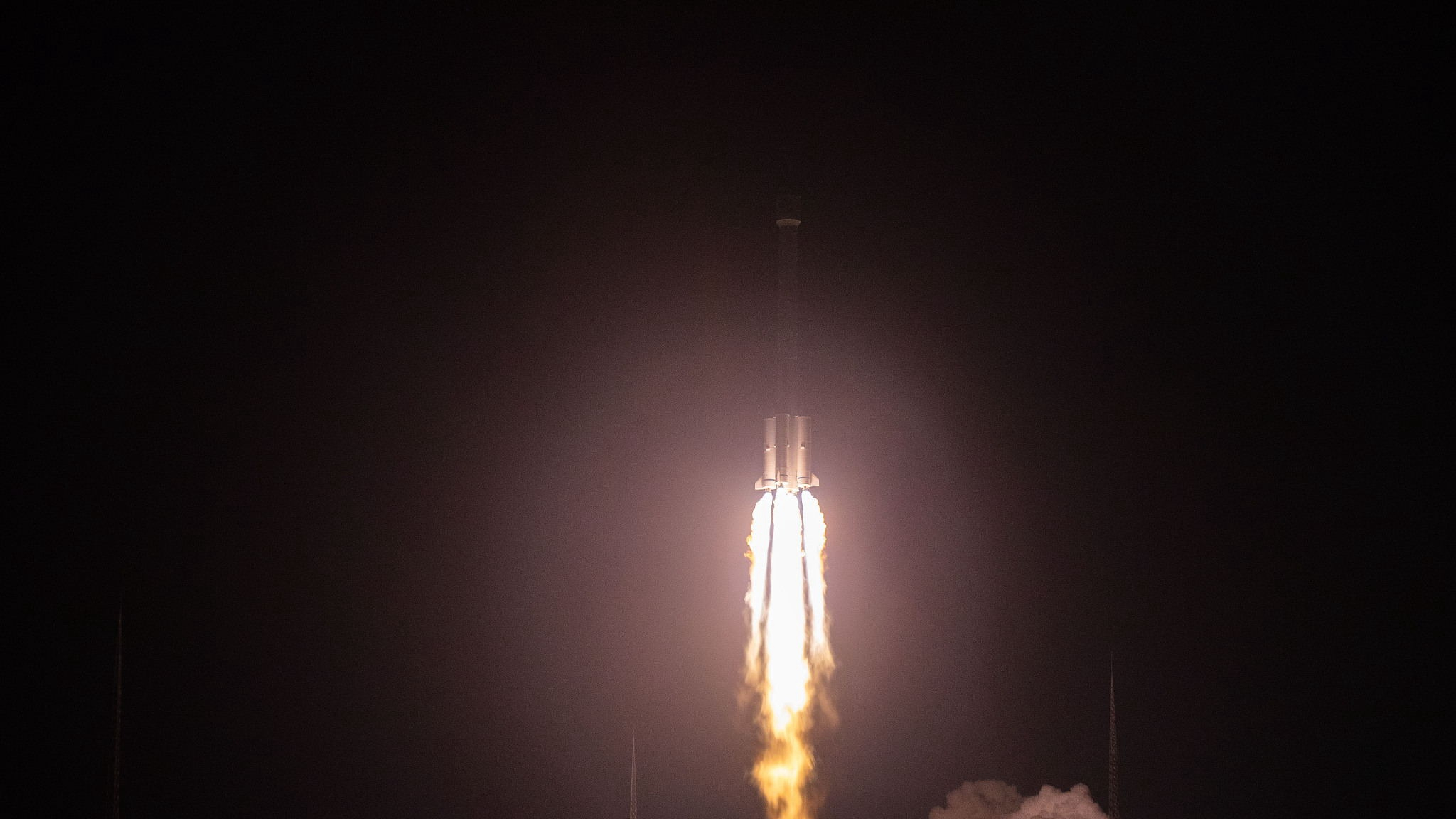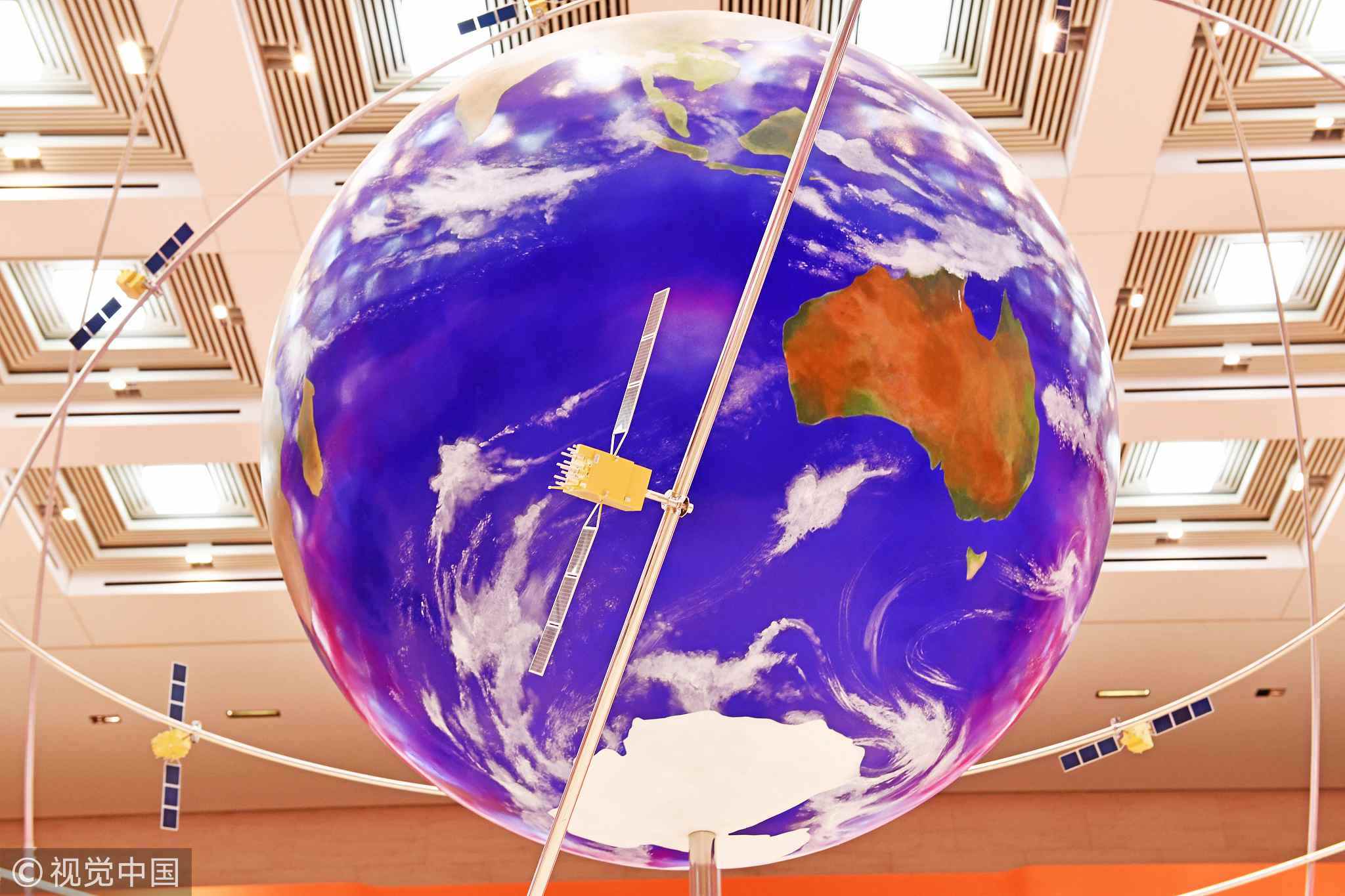
Opinions
15:24, 28-Dec-2018
Opinion: BDS global services benefit international community
Updated
14:46, 31-Dec-2018
Shen Jun

Editor's note: Shen Jun is the Deputy Director of International Cooperation Center, China Satellite Navigation Office. The article reflects the author's views, and not necessarily those of CGTN.
The preliminary system of the third generation of the BeiDou Navigation Satellite System (BDS-3) has been completed to start providing global services on Thursday, Ran Chengqi, Director General of China Satellite Navigation Office, announced at a press conference held by the State Council Information Office in Beijing on Thursday.
"Independently built and operated by China, BDS is a global navigation satellite system which is compatible with other global navigation satellite systems," Ran stated.
The BDS development was initiated in the 1990s. According to a three-step development strategy, and with a roadmap from active to passive, from regional to global, BDS-1, BDS-2, and BDS-3 systems have been developed in sequence with Chinese characteristics.
As one of the four core Global Navigation Satellite Systems (GNSS), with the others being the U.S.' GPS, Russia's GLONASS, and the European Union's Galileo, the BDS offers the positioning, navigation, and timing (PNT) services with the comparable performance standards, compared with other members in the GNSS family. The BDS is also compatible and interoperable with other GNSS, which means that all the systems do not interfere with each other and can work together if needed. The multi-constellation services have proven to be useful to enhance the system performance.
In addition to the basic PNT services, the BDS also offers some characteristic services such as the satellite-based messaging and position reporting services, a built-in BeiDou Satellite-based Augmentation System for aviation users, and integrated search and rescue service, etc.

The model of China's BeiDou Navigation Satellite System /VCG Photo
The model of China's BeiDou Navigation Satellite System /VCG Photo
Another highlight is that all the key technologies and core components of the BDS-3 satellites are made by China with independent property rights. Using independent products on BDS is critical for national security and interests. With hard work, the scientists and engineers of the BDS team successfully completed all key technologies and core components independently, and the products have been of a high quality, ensuring the technological leadership for the BDS.
In the congratulatory letter sent to the 13th Meeting of International Committee on GNSS on November 5, Chinese President Xi Jinping stated, a satellite navigation system is an important space infrastructure to provide all-weather precise time and space information services on work and life…China is willing to share the development achievements of the BDS with other countries and to promote the vigorous development of the GNSS.
As of Thursday, the BDS-3 preliminary system consisting of about 19 BDS-3 satellites was completed and offers a global service. At the current stage, the BDS offers a positioning accuracy of 10 meters worldwide, and five meters in the Asia-Pacific region.
The BDS has been serving a wide range of countries across Asia and Africa where it has gained an excellent reputation. The completion of the BDS-3 gives the people in the Belt and Road countries and regions either improved GNSS services in Asia-Pacific or another selection of GNSS providers, benefiting the lives of many.

Xichang Satellite Launch Center in Sichuan Province, November 19, 2018. /VCG Photo
Xichang Satellite Launch Center in Sichuan Province, November 19, 2018. /VCG Photo
The completion of the BDS-3 preliminary system and global coverage means that Chinese people can enjoy a global navigation system which is independently developed and operated by China. People can use BDS alone to receive high quality services anywhere and anytime in the world.
For international users, BDS offers not only another option when choosing a GNSS provider, but also a candidate to combine with other GNSS to provide enhanced services. Thus, the experiences and achievements of the BDS development can be beneficial for people worldwide.
As summarized by Ran at the press conference, for BDS, providing global services is a big step and a new starting point in the BDS development process. By 2020, 11 BDS-3 satellites and 1 BDS-2 satellite will be launched to fully complete the BDS-3 global constellation deployment and to further improve the current system performance. By 2035, with BDS as the core, a more comprehensive, more integrated and intelligent national integrated PNT system will be completed. China is willing to share the BDS achievements with all countries in the world, and with stronger functions and better performance, BDS will serve the world and benefit the mankind.
(Cover photo: Two new Chinese satellites of the BeiDou Navigation Satellite System (BDS) are sent into space on a Long March-3B carrier rocket from the Xichang Satellite Launch Center in Sichuan Province on Nov. 19, 2018. /VCG Photo)
(If you want to contribute and have specific expertise, please contact us at opinions@cgtn.com.)

SITEMAP
Copyright © 2018 CGTN. Beijing ICP prepared NO.16065310-3
Copyright © 2018 CGTN. Beijing ICP prepared NO.16065310-3